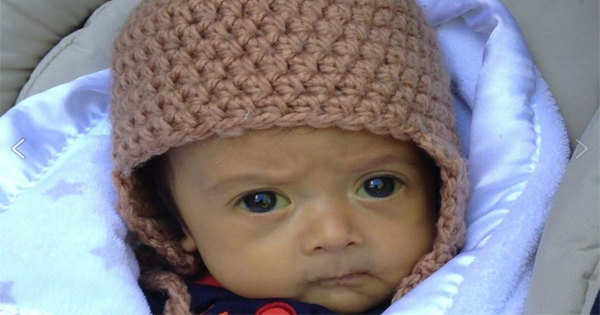When Daniel McCabe was born on July 20, 2016, everyone present immediately noticed that his skin was tinged yellow. Doctors immediately diagnosed him as having an excess of bilirubin, the yellow pigment present in red blood cells.
Daniel’s liver wasn’t able to get rid of his body’s excess bilirubin, as livers are meant to do, but there was a chance his liver would mature and eventually learn to carry out this process.
Months passed, Daniel remained yellow.
Doctors diagnosed him with biliary atresia, a condition where the bile in a person’s body is never filtered through the liver and into the gallbladder. The bile gets trapped in the liver, eventually killing the organ.
Over time, the scar tissue in Daniel’s liver hardened. His body weakened and his bones became frail to the point where his parents were no longer able to hold him, for fear of causing him a fracture.
Doctors offered to perform a stopgap surgery on Daniel, in hopes of improving his condition, but nothing changed.
The McCabe family had, at this point, developed a routine around routine blood tests and rushing Daniel to the hospital to receive the proper emergency treatment he needed to survive.
Come December, Daniel’s doctors were losing hope. They knew Daniel would have to undergo liver transplant to survive, but warned his parents that this could mean another four months of waiting – during which Daniel might die.
On December 13, as Daniel’s parents awaited their son’s lab results from his latest blood test, the doctor walked in looking grave.
Daniel’s mother, Melody, prepared herself for bad news.
“We have a liver,” the doctor said, instead.
The McCabes were stunned. They had no clue their son had even made it onto the transplant list yet, but he had at 10:15 a.m. that morning. 40 minutes later, at 10:55 a.m., a liver was available, from a donor who matched Daniel in age, size, and blood type.
“It was a combination of factors, including the organ’s availability, size and correct match for Daniel’s blood group,” Daniel’s doctor said. “It was really a matter of luck.”
The transplant procedure went smoothly, and although Daniel is yet to be 100% in the clear, his doctors and family are far more confident about his improvement now than they ever were before.





